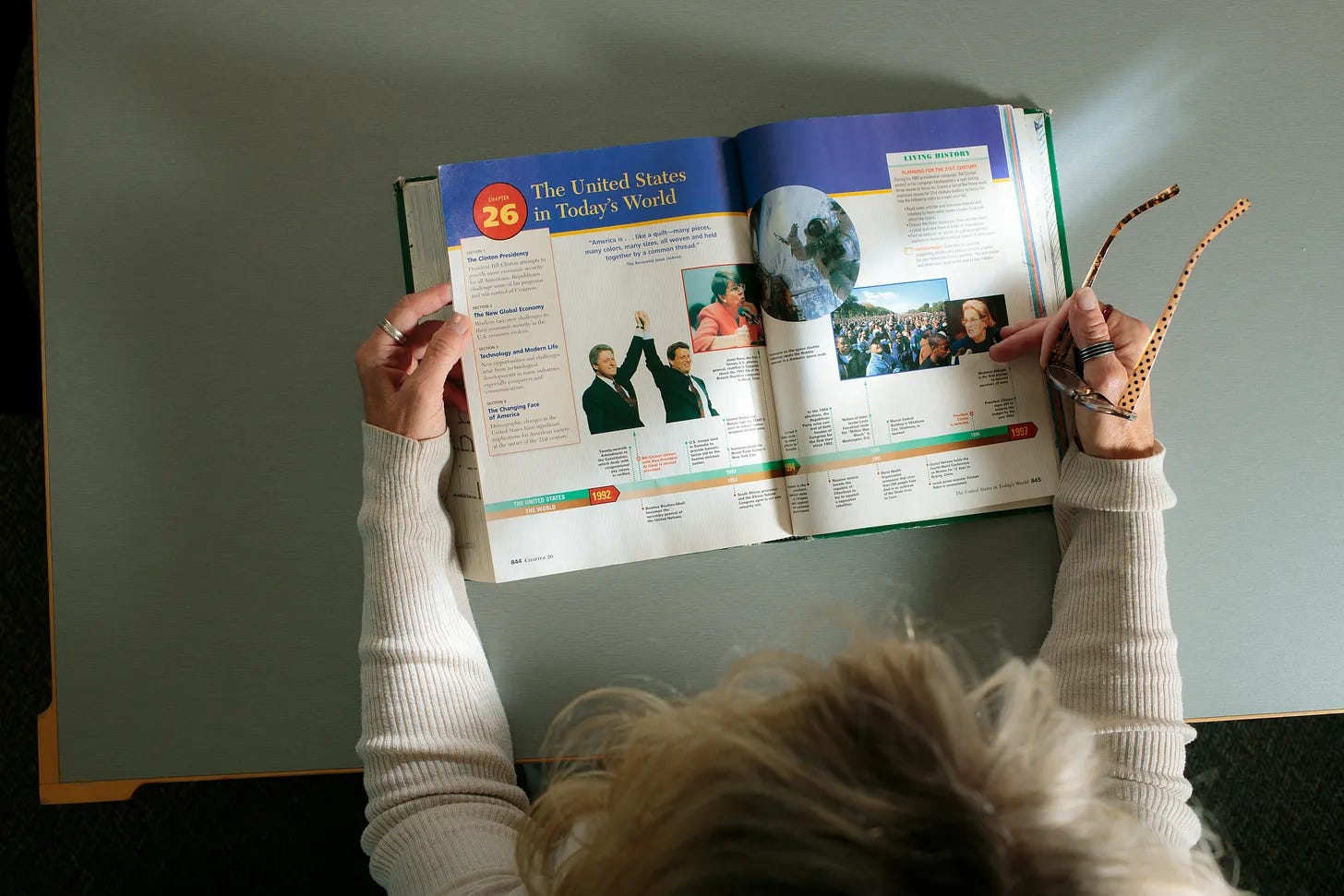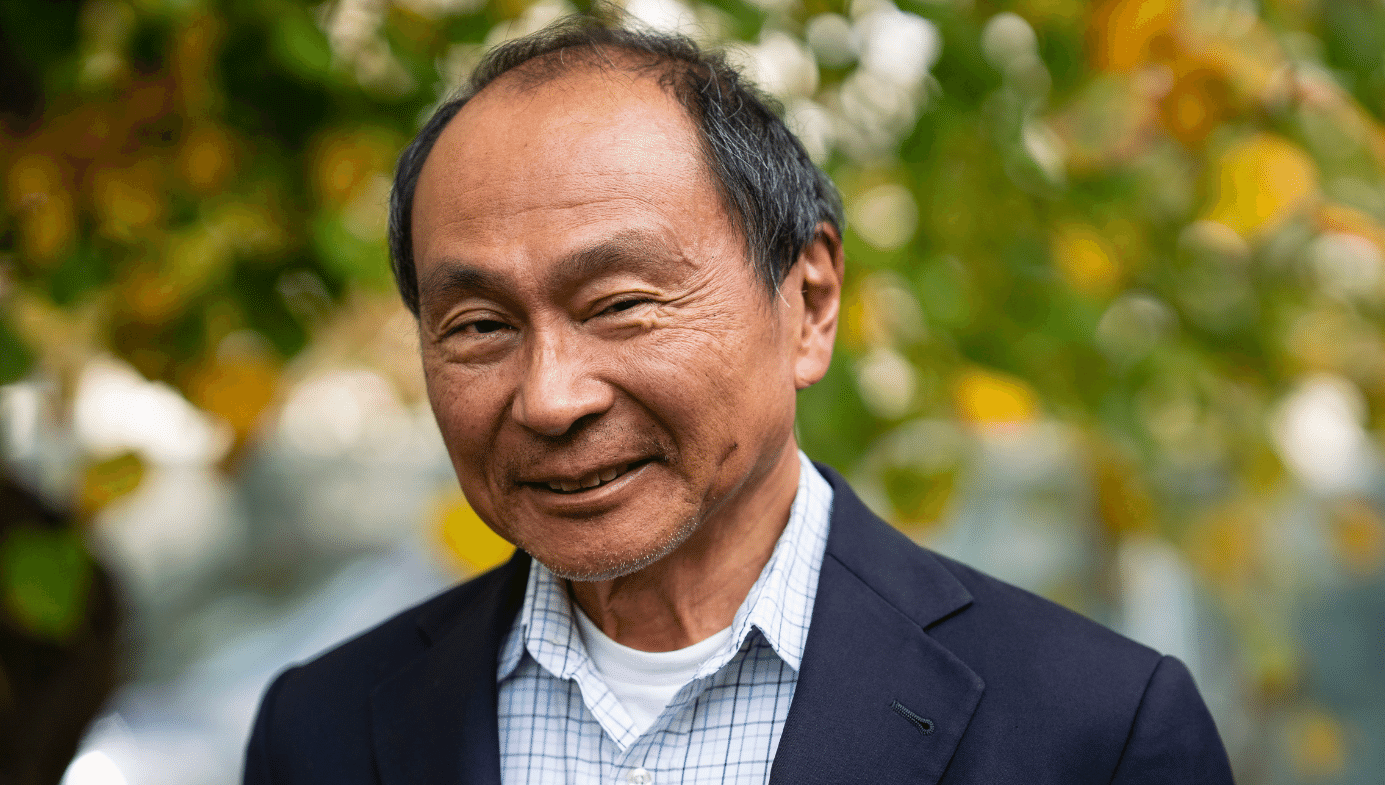A personal reflection on racial preferences
This week on our Substack, Dennis Safran writes about his personal experience with racial preferences, and why he believes that we should judge people as individuals rather than as representatives of a racial group.
I didn’t think of my parents’ conversation again until eight or nine years later, when racial preferences in hiring and college admissions were first instituted in response to the demands of the radical progressive movements of the late sixties. By then I was a part of those movements, full of the sanctimonious certainty of a 14-year-old and righteous fury at the racism of my relatives who hadn’t regarded “colored people” (for which I of course substituted whatever name was then in vogue) highly enough. To most observers, I perfectly fit the mold of a supporter of these new racial preferences.
Yet, as much as it would have helped my progressive bona fides, I couldn’t bring myself to buy in; the logical implication of that conversation my parents had kept coming back to me. If setting the bar higher for Dr. Robinson than for whites, as it almost certainly had been in the days of Jim Crow, led people—even some of those inclined towards prejudice—to rationally conclude that he was probably more qualified than white doctors held to a lesser standard, then why shouldn’t the reverse apply as well? If standards were lowered for black medical school or law school or college applicants, wouldn’t it be equally natural to assume that, on balance, they were less qualified and competent than their white counterparts? And what would that do for race relations in a society that was just taking its first baby steps towards Dr. King’s dream of judging people “based on the content of their character rather than the color of their skin?”
Heterodox Trans People #1
For her Substack, FAIR Advisor Lisa Selin Davis speaks with FAIR Advisor Zander Kieg about why reasonable people can have different perspectives on transgender issues, and the importance of measured, compassionate conversations.
And so the people that are on this so-called “extremes” of the for and against are people that are arguing from a perspective who might not know that they hold that perspective. Or, if they do, they might not recognize that other perspectives are also held by people and that perhaps they're legitimate as a viewpoint.
That doesn't mean that they're legitimate for making law or policy or statute or ordinance. Right. That should be handled by more reasonable minded people that aren't using that kind of influence and that kind of, you know, power dynamic.
So I'd say that, you know, we have to recognize that we all have different core values. We all have different worldviews. We all have different moral foundations. Right. And so one of the things that I do as a social worker is I coach people and I do trainings on getting more familiar with the self as a clinician and investigating these things like: What is my worldview? What are my core values? What are my moral foundations? What kind of intervention models do I prefer? What theoretical orientation do I hold as a clinician?
Most people can graduate school and not know any of these things about themselves. And so that's something that I bring into the trans community as well.
Common Sense Is Now The Free Press
FAIR Advisor Bari Weiss announced that Common Sense, the Substack she started last year, is now The Free Press.
The Free Press is built on the ideals that remain the bedrock of American journalism: honesty, doggedness, and fierce independence. You didn’t know it at the time, but you’re one of our many founders. You have read, shared, and commented on our important stories from the past year.
Stories such as: how the ideological takeover of American medicine and the law has endangered our health and our rights; how schools are indoctrinating even our youngest children into a belief that racism is everywhere and that biological sex doesn’t exist; how vulnerable teens are being pushed into experimental gender transition, and how our public health scientists failed to “follow the science.” We brought you shocking accounts from around the world about Canada’s new euthanasia laws; China’s global ambitions and how it is capturing the minds of young Americans; and love in the time of war in Ukraine. We reported on the stories that you thought you knew, but didn’t—like the real story of the Central Park Karen. And every Friday in TGIF, Nellie Bowles summarizes our week with her inimitable wit.
I started Common Sense because I knew I had something to say that wasn’t being said, about the world around us. Now my colleagues and I have a new home for honest news, lucid opinion, and a community of people who think for themselves. We need one address—one home, one platform you can trust—for the best independent journalism out there. Today, the Free Press becomes that place.
What Elon Musk Gets Wrong About Free Speech
For TIME, FAIR Advisor Jacob Mchangama, the CEO of Justitia and author of Free Speech: A History From Socrates to Social Media, writes about what he believes Elon Musk gets wrong about freedom of speech.
But you don’t have to be an Elon “stan” or subscribe to Musk’s half-baked free speech philosophy to worry that free expression isn’t taken seriously enough by global, digital platforms. Legally the protection of free speech is primarily a relationship between government and citizens. But a thriving culture of free speech depends on broad societal tolerance of ideas that fly in the face of polite opinion and established orthodoxy.
Indeed, social media companies’ content moderation policies matter. No single government in history has ever been able to exert such extensive control over what is being said, read, and shared by so many people across the world in real time.
In short, there is a compelling case to be made for why free speech should be strengthened, not weakened on social media. But the sceptics are unlikely to be persuaded by a conception of free speech based on partisan grievances and trolling. Instead, Musk should focus on demonstrating how the benefits of a more robust commitment to free speech on Twitter will outweigh the harms.
The Curriculum Wars Are Based On An Illusion
For Yasha Mounk’s Substack, Persuasion, Seth Moskowitz writes about how Americans are more united on how to teach our history than we are led to believe.
This divide among the most strident ideologues will perhaps not be all that surprising to those who have read The 1619 Project Curriculum or have seen Tucker Carlson’s hysteric coverage of middle-school history curriculum. But while they make a lot of noise and are overrepresented in the media, ideologues on both the left and right comprise a relatively small slice of the American public (about 15% altogether).
Unfortunately, those who make up the more extreme ends of the political spectrum seem to have an outsized influence in a number of our institutions, including media, political parties, and universities. But Americans should not let these extremists create the illusion that the rest of us are in irreconcilable disagreement on the issue of how to teach history. The vast majority of Americans want students to be taught a curriculum that includes the good parts of the country’s history as well as the bad, that treats historical events and figures as multi-dimensional, and that doesn’t teach students to feel guilty on behalf of previous generations.
In other words, Americans want to teach history with the complexity it deserves rather than the simplicity that a political agenda would require.
Fukuyama’s Victory
For Quillette, Matt Johnson writes about how liberal democracy has once again proved itself capable of overcoming its internal challenges and contradictions.
Despite the evidence of political decay in liberal democracies over the past several years, democratic governments and societies have proven more resilient than their authoritarian enemies expected. Putin’s invasion of Ukraine was met with the strongest display of European and transatlantic unity in decades. The authoritarian response to COVID that China could boast about two years ago has turned into a humiliating nightmare for its government and people, as democratic countries manage the disease and return to normal while Chinese citizens continue to suffer under oppressive and economically devastating restrictions. (Amid the outrage over the fire, many Chinese have also expressed frustration at the footage of unmasked football fans at the World Cup—the sort of event they’re unable to attend.) Most importantly, democratic procedures and institutions have proven their durability during a series of authoritarian onslaughts from within, particularly in the United States, but also in Brazil and elsewhere around the world.
Want to help advance civil rights and liberties for all, and promote a common culture based on fairness, understanding, and humanity? Sign up for a free subscription today!
Join the FAIR Community
Become a FAIR volunteer or to join a FAIR chapter.
Join a Welcome to FAIR Zoom information session to learn more about our mission, or watch a previously recorded session in the Members section of www.fairforall.org.
Take the Pro-Human Pledge and help promote a common culture based on fairness, understanding, and humanity.
Support FAIR and the pro-human movement with a tax-deductible donation.
Share your reviews and inform our legal team of incidents on our FAIR Transparency website.










